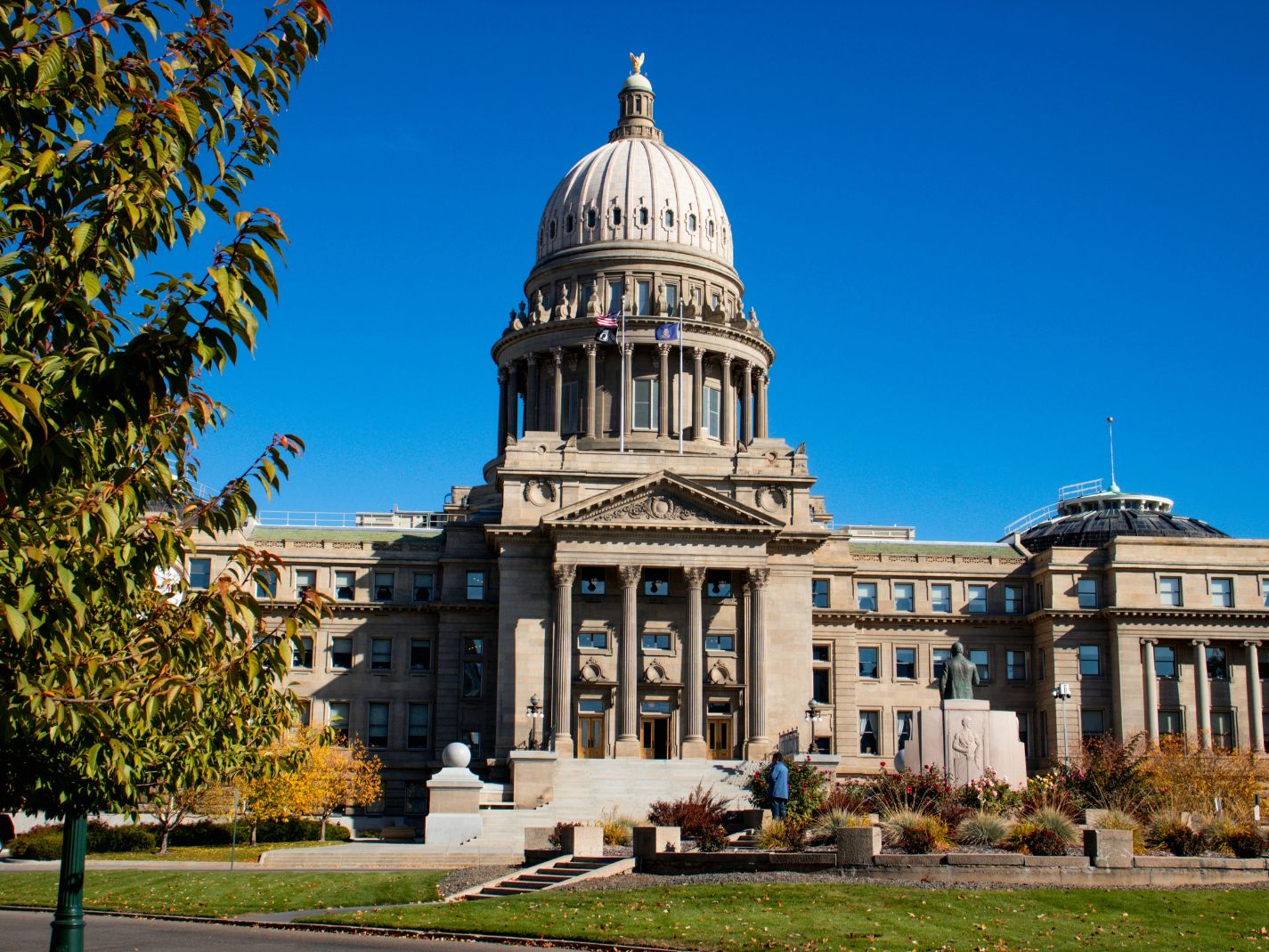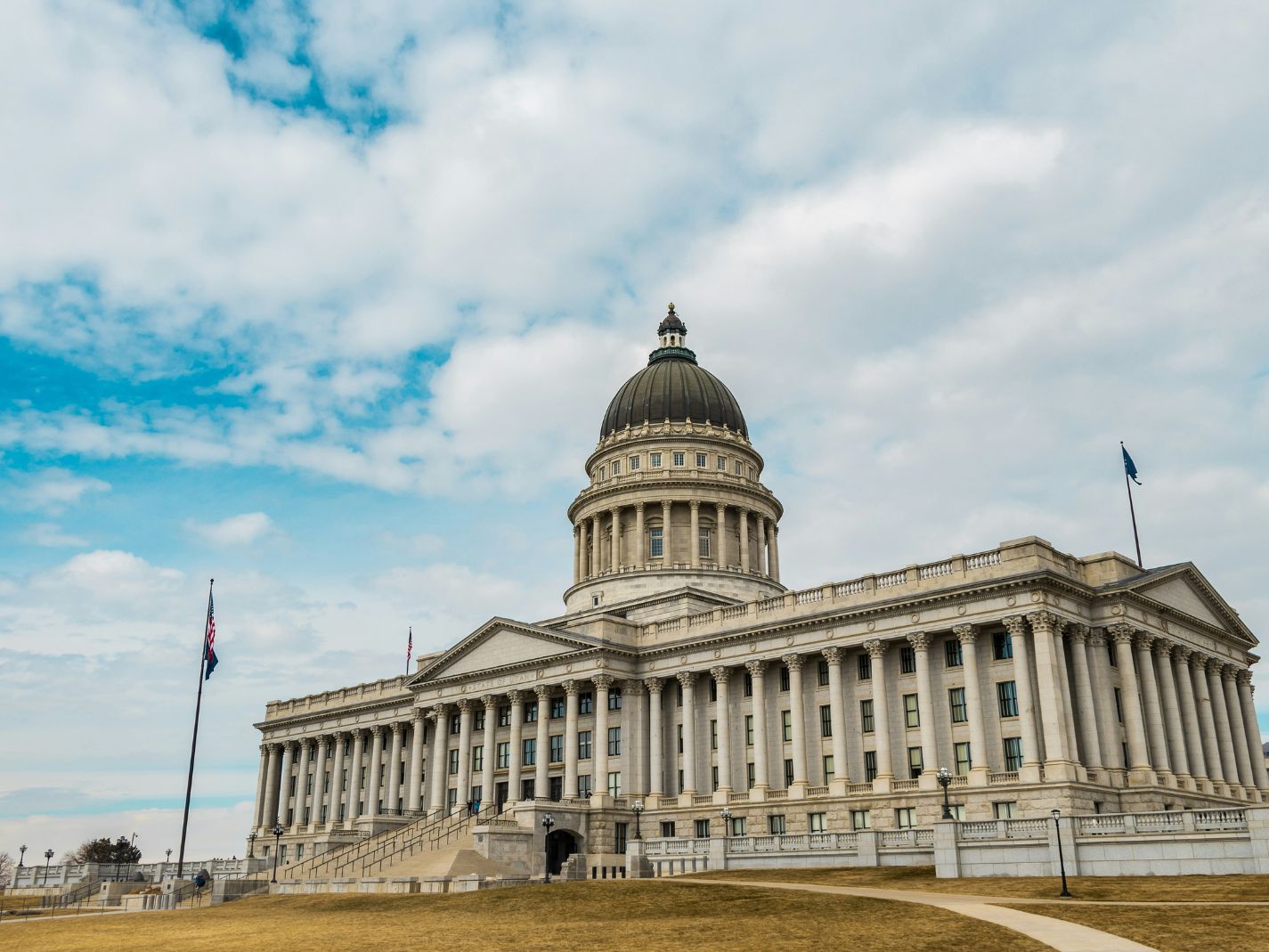Happy Thanksgiving! We just co-launched a model General Education Act. We’ve been integrating some data from CivXNow. We’ve updated American Birthright to include more religious history. All this and more in the latest Resolute …
Happy Thanksgiving!
I like a poem by Nancy Byrd Turner, First Thanksgiving of All:
Peace and Mercy and Jonathan,
And Patience (very small),
Stood by the table giving thanks
The first Thanksgiving of all.
There was very little for them to eat,
Nothing special and nothing sweet;
Only bread and a little broth,
And a bit of fruit (and no tablecloth):
But Peace and Mercy and Jonathan
And Patience, in a row,
Stood up and asked a blessing on
Thanksgiving long ago.
Thankful they were their ship had come
Safely across the sea;
Thankful they were for hearth and home,
And kin and company;
They were glad of broth to go with their bread,
Glad their apples were round and red,
Glad of mayflowers they would bring
Out of the woods again next spring.
So Peace and Mercy and Jonathan,
And Patience (very small),
Stood up gratefully giving thanks
The first Thanksgiving of all.
Happy Thanksgiving to everyone.
Model General Education Act
The National Association of Scholars, the James G. Martin Center for Academic Renewal, and the Ethics & Public Policy Center have just published the new model General Education Act (GEA). GEA first creates a new, independent School of General Education at the flagship state university, which will assume responsibility for all general education courses, and provides a three-year transition from the old system of general education to the new. GEA then specifies that the general education requirements at the flagship state university will consist of a core curriculum of thirteen courses, including Western History, Western Humanities, World Civilizations, United States History, United States Government, and United States Literature, and comprising 42 semester hours. GEA finally states that the university may add no further general education requirements.
In other words, the GEA proposes a massive re-do of how we do required college courses—changing from distribution requirements to a core curriculum, and setting up a new administrative structure to make sure its taught properly. It’s a really ambitious proposal to reshape the core of college education for the better.
It’s also a way to redo K-12 social studies education. If and when the GEA passes, any graduate from a flagship public university will have taken all the content courses he needs to become a K-12 social studies teacher—and he will have the education he needs to teach it well. If the GEA gets extended from flagship campuses to other public universities, every college graduate in a state would be qualified to teach K-12 social studies. Not every graduate would want to, and the remaining qualification requirements would deter more—but the GEA can still make it possible for a vastly increased number of people to become K-12 social studies teachers. That includes a large number of education reformers, who just want the chance to teach.
The GEA offers good policy just in terms of higher education reform. But it will also increase the supply of reform-minded K-12 social studies teachers, and that’s a very good thing too.
CivXNow Data
CivXNow is the Joker to our Batman, our Nemesis, our opposite number … they’re in favor of all the political initiatives we’re against. (Or even when we agree that a Civics requirement would be a good thing, the content of their Civics requirement is action civics rather than real civics.) And, they’ve added a new State Policy tab to their website, which summarizes all their state-level initiatives. This is good information to have! So with a tip of the hat to our Nemesis, I’ll tell you what you can learn from the CivXNow website about state policy.
- State Policies: CivXNow has provided a handy checklist of state civics education policies, including required civics courses, media literacy standards, civics assessments, civics seals, and state credit for service learning. Their format isn’t very user-friendly; I’ve converted the data into a PDF that should be easier for people to read.
- State Policy Menu: CivXNow helpfully outlines what their policy agenda is for the states.
- Pending State Bills: This map of pending civics bills is the equivalent of our Civics Bill Tracker. Civics education reformers should look at both, to be sure they have full coverage of what’s happening in a particular state.
- State Legislation Examples and Template State Bills: What CivXNow is pushing for.
- State Coalition Affiliate Program: The local henchmen of CivXNow.
Since CivXNow has been kind enough to say what they’re doing, civics education reformers ought to take a look.
American Birthright: More Religious History
We’ve made a small update to American Birthright, to add more religious history to our Grade 9 Development of Western Civilization (Items # 24, 42, 62; pp. 91, 96, 101) and our Grade 11 United States History (Items # 50, 66, 81; pp. 133, 138, 143). The three Grade 9 items add coverage of European religion in the 18th, 19th, and 20th centuries; the three Grade 11 items add coverage of American religion from 1865 to 1914, 1914 to 1945, and 1945 to the present.
What do the changes look like? Like this:
50. Describe important aspects of American religion between 1865 and 1914. (H)
- Social Gospel
- Holiness movement (Keswickianism, Azusa Street Revival, Pentecostalism)
- Foreign missions
- Increasing role of Catholicism (James Gibbons)
- Increasing role of Judaism (Solomon Schechter)
State Social Studies Standards: What’s Coming Up
- Alaska: Alaska’s Department of Education contracted with the American Institutes for Research to provide draft social studies standards. These draft standards are scheduled to be submitted to the State Board of Education and posted for public comment in March of 2024.
- West Virginia: Social studies standards will be reviewed through January 2024, and presented to the State Board of Education in April 2024.
If you have news we don’t please write in and say! But as far as we can tell, that is the state of play for the present moment.
Civics Alliance Now Has Ten State Affiliates
The Civics Alliance is building a network of state affiliates—groups dedicated to removing action civics in their states, whom we will list on our website. Our newest state affiliate is Nebraska, run by Dennis Applegarth. Welcome, Dennis and Nebraska! We now have ten affiliates, in Alabama, Colorado, Georgia, Mississippi, Missouri, Nebraska, Ohio, Pennsylvania, Rhode Island, and Texas. If you would like to form such an organization, or suggest an existing organization, please get in touch with David Randall (randall@nas.org).
Monthly American Birthright Zoom Meeting
The Civics Alliance will have its monthly Zoom session devoted to social studies standards reform on Monday, November 27, at 2:00 PM Eastern Time. Please email randall@nas.org if you would like to join these monthly Zoom meetings.
Social Studies Standards Revision Schedule
2024/Current: Alabama, Alaska, Arizona, Connecticut, Idaho, Kentucky (partial), Montana, Ohio, Oklahoma, Oregon, West Virginia, Wisconsin, Wyoming
2025: Kentucky, Nebraska, Texas
2026: Colorado, Maryland, North Dakota, South Carolina
2027: Hawaii, Kansas
2029: Louisiana
2030: Minnesota
2031: Illinois
No Revision Currently Scheduled: California, Delaware, Florida, Georgia, Iowa, Massachusetts, Michigan, Missouri, New Hampshire, New Mexico, New York, North Carolina, Pennsylvania, South Dakota, Tennessee, Utah, Vermont, Virginia, Washington.
Please email David Randall (randall@nas.org) if you are interested in further information about your state’s social studies revision process, and what you can do to participate.
Continuing Priorities: Federal Legislation
At the federal level, the Civics Secures Democracy Act threatens to impose action civics nationwide.
The Civics Bill Tracker
Civics Alliance supporters may now use the Civics Bill Tracker to track all proposed federal and state legislation related to civics.
Public Action
We encourage Civics Alliance supporters to inform the public and policymakers about the stakes and consequences of action civics bills.
David Randall is Executive Director of the Civics Alliance and Director of Research at the National Association of Scholars.
Photo by Pro Church Media on Unsplash



